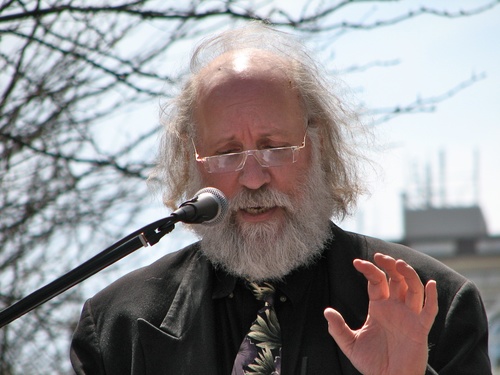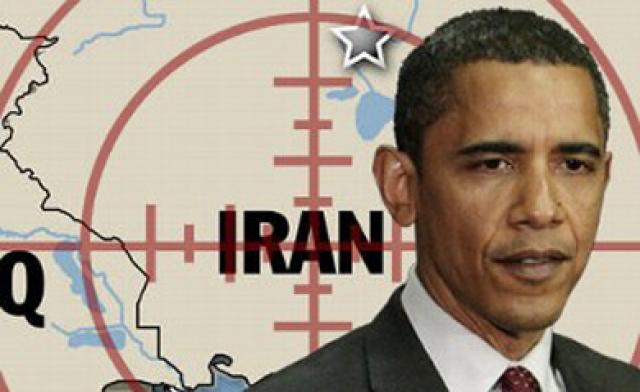US Appeasement of Iran Endangers the entire Persian Gulf
Following the Iconoclast post yesterday on the “Two Faces of Sen. Dianne Feinstein”, there was an exchange of views with Shoshana Bryen, Senior Director of the Jewish Policy Center and Sarah Stern, President of the Endowment for Middle East Truth. We were discussing a matter related to the threat that Iran posed to the US in the Western Hemisphere; the Administration succumbing to de facto Iranian nuclear hegemony in the Persian Gulf. Daniel Pipes in an, NRO-The Corner article, drew attention to Administration appeasement enabling Iran to strike deals with Oman and the United Arab Emirates (UAE). This resulted in Iran gaining potential control over the strategic Straits of Hormuz, “Has Iran gained a Foothold in the Arabian Peninsula”?
Pipes’ important article appeared while Washington and the world media were focused on the implementation of the Six Powers Joint Plan of Action, portions of which were released by the White House yesterday. Other salient provisions of which were sequestered at the request of UN nuclear watchdog, the International Atomic Energy Agency (IAEA). He drew attention to the agreements both the UAE and Sultanate of Oman:
According to a sensational report by Awad Mustafa in Defense News, a Gannett publication, not only has Tehran signed an agreement with the UAE over three disputed islands near the Strait of Hormuz, but it has also reached a possibly even more important accord with the government of Oman. Both of these agreements have vast implications for the oil trade, the world economy, and Iranian influence.
According to an unnamed “high level UAE source,” secretive talks taking place over six months led to a deal on the Greater and Lesser Tunbs finalized on Dec. 24: “For now, two of the three islands are to return to the UAE while the final agreement for Abu Musa is being ironed out. Iran will retain the sea bed rights around the three islands while the UAE will hold sovereignty over the land.”
This is big news, but yet bigger potentially is the source’s stating that “Oman will grant Iran a strategic location on Ras Musandam mountain, which is a very strategic point overlooking the whole gulf region. In return for Ras Musandam, Oman will receive free gas and oil from Iran once a pipeline is constructed within the coming two years.”
Both agreements center on the Strait of Hormuz, the world’s most important oil passageway and vulnerability.
- The UAE deal involves the tiny but strategic islands of Abu Musa and the Greater and Lesser Tunbs near the straits, occupied by Iranian forces since 1971, just as the UAE emerged as an independent country.
- It’s not clear what granting to the Iranians “a strategic location on Ras Musandam mountain” means but Musandam is the very tip of the Straits of Hormuz and Tehran winning access to any sort of military position there could enhance their ability to block the oil trade as well as make trouble on the peninsula.
Oman’s role in facilitating the UAE-Iran talks, says the source, was approved by Washington: “Oman was given the green light from Iran and the US to reach deals that would decrease the threat levels in the region and offset the Saudi Arabian influence in the future by any means.”
Couple this development with what happened at a US Senate Foreign Relations confirmation hearing Wednesday involving the Obama emissary who facilitated those back channel conversations with Tehran in Oman, Puneet Tawar. The Global Affairs blog of The Hill in a post noted how two Republican minority members, Florida Senator Marco Rubio and Idaho Senator James Risch stopped Tawar’s confirmation, “Rubio, Risch block Obama nominee over ‘back channel’ talks with Iran”:
Sens. Marco Rubio (R-Fla.) and James Risch (R-Idaho) are holding up a vote on a State Department nominee over his involvement in back channel talks with Iran that have infuriated Republicans, The Hill has learned.
The Republican lawmakers prevented the Senate Foreign Relations Committee from voting Wednesday to confirm White House Iran adviser Puneet Talwar as the new Assistant Secretary of State for political military affairs.
Talwar was one of several U.S. officials who met in secret with Iranian negotiators in Oman in 2012 and 2013 before multilateral talks officially resumed following President Hassan Rouhani’s election in June.
“Sen. Rubio is requesting additional information from Mr. Talwar about his role in the so-called ‘back channel’ outreach to Iran,” a Rubio spokeswoman told The Hill in an email.
[…]
“It focused exclusively on the nuclear issue, so there were no other side discussions underway,” Talwar responded. “And it was merged [with the multi-party talks] after the conversations gained traction.”
In my discussion with Bryen and Stern I drew attention to what an Iranian nuclear hegemon in the Persian Gulf might do to US national interests. Iran producing a nuclear weapon might threaten US Fifth Fleet base in Bahrain and possibly its strategic base at Diego Garcia in the Indian Ocean. Both of these facilities protect the free flow of oil to U.S. allies South Korea and Japan, among others. Bryen pointed out that Japan may choose an energy deal with Russia rather than risk an oil cutoff from the Gulf if the U.S. is no longer the guarantor. Such a deal would change the nature of American “pivot to Asia” and alliances there. If Iran produces nuclear weapons, which it may have already, it is likely to play a form of n-dimensional nuclear Three Card Monte. If the US capitulates, then the Gulf emirates and the Saudis may have to resort to baksheesh to preserve their access to the Persian Gulf and Straits of Hormuz to make mega-revenues in the world energy trades. The Saudis at least have pipelines to secure Red Sea ports. The Iranian Shia mullahs on the opposite shore of the Persian Gulf will simply use hidden nuclear suasion to gain revenues from their despised Sunni members in the Muslim Ummah.
In a Wall Street Journal excerpt from former Secretary Gates’ memoir, Duty, he criticized the political operatives populating the West Wing National Security Council (NSC). In contrast to other Administrations, many Obama NSC advisers are people to whom the Administration owed political favors. Among those he cites are Tom Donilon, former Clinton era chief of staff at the State Department, who like his NSC deputy, Denis McDonough, the later is Obama’s current Chief of Staff, had limited national security groundings. Early Obama Administration NSC chief, former Marine Gen., Jim Jones criticized Donilon for “his lack of overseas experience”, telling him “You have no credibility with the military”, according to Bob Woodward’s, Obama’s Wars. McDonough, prior to joining Senator Obama’s staff was a foreign affairs aide to former Senate Majority Leader Tom Daschle and subsequently served in the same capacity with former Interior Secretary and Colorado Senator Ken Salazar. We wrote about McDonough’s role in meeting with Muslim Brotherhood leaders at the 2012 Brookings Doha Qatar Center meetings. Wendy Sherman, a colleague of Donilon at State during the Clinton Administration, did us no favors over the oil/ food for no nukes deal with North Korea under Kim Jong -Il, the late father of the current ruler, Kim Jong- Un. All we received from Ms. Sherman’s efforts were nuclear tests; test of ICBMs and exchange of technology to assist Iran in its bomb making. Now as Undersecretary of State, Sherman has brought us the P5+1 agreement. As to nuclear bomb making support by North Korea just recall, the pictures we have of Iranian and North Korean scientists assisting Syria in building the nuclear bomb factory on the banks of the Euphrates destroyed by Israel in September 2007. The Administration has failed in the view of many to meet the sense of the Kissinger adage: “America has no permanent friends or enemies, only interests”.
The Obama Administration has jeopardized potential strategic control of the oil rich Persian Gulf. Both the UAE and Oman know that. This could present a threat to Diego Garcia in the Indian Ocean with its stockpile of nuclear weapons and cruise missiles and B-52 bombers. As Bryen commented, “When Munich occurred at least the Chamberlain rationale was that it gave the British and French time to prepare for war against Nazi Germany”. However, what rationale does the Administration have?
The Persian Gulf allies have witnessed the Administration losing resolve in the region causing them to seek whatever cover they can from the predatory hegemon to avoid becoming what Churchill called, “crocodile food”. Is Israel next?
EDITORS NOTE: This column originally appeared on The New English Review.







